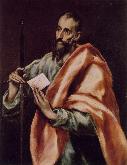
25 January 2006: Feast of the Conversion of St. Paul
The readings especially from the Acts of the Apostles (22:3-11) tell us about conversion.
However, it is rare that we experienced the radical conversion of Paul. Not one of us, I am sure, has experienced a blinding light, and yet we are challenged to reform our lives. David Whyte, once wrote a poem entitled, “Self-Portrait” that can lead us to the first step of conversion. He wrote “Self-Portrait” after looking in the mirror one morning. It was one of those mornings where, something was telling him to stand up, to wake up, and be honest about what his life was leading him to be and do. This is his poem:
| It doesn’t interest me if there is one God or many gods. I want to know if you belong or feel abandoned. If you know despair or can see it in others. I want to know if you are prepared to live in the world with its harsh need to change you. If you can look back with firm eyes saying this is where i stand. | I want to know if you know how to melt into that fierce heat of living falling toward the center of your longing. I want to know if you are willing to live, day by day, with the consequence of love and the bitter unwanted passion of you sure defeat. I have heard, in that fierce embrace, even the gods speak of God. |
What do we see when we stumble out of bed in the morning and gaze in the mirror? What do those lines, those eyes --- the way we hold our head --- our familiar face reflect to us of the heart and soul of our life? What does it say about what matters to us, about how open we are to the questions in our hearts? Or is our image of ourselves shaped instead by a mask of acquired opinions about us, what others say we are?
Whyte poem starts with a fierce declaration, that he has no interest in one god or many gods (god here is in small letters). He is not interested in religious and philosophical positions --- whether you are Buddhist, a Muslim, an atheist, an existentialist, etc. Often our responses when someone asks us are a litany of the things we do, or have, or believe: I’m an artist, a Christian, a Buddhist, I am poor, I am rich, may trabaho. I love badminton, poetry, Mozart. Ayoko sa gobyerno at sa illegal logging.
They are irrelevant when we gaze into the truth of life. Confronted with ourselves in the mirror, what we might see, if we are willing to look, are the feelings that run deep in our veins and leave their mark in our eyes, in the set of our jaw, on our every word and gesture. Conversion begins with this first step: what is the truth of your life. Do you feel, as Whyte said, you belong to your life? Are you at peace? Sometimes, even when we are old, we are not at peace with who we are. In another poem, “Sweet Darkness”, Whyte urges us to: Give up all the other worlds, except the one to which you belong.
That is what Jesus asked of Paul: Give up all the other worlds, even all that you have formerly believed, and take the one to which you belong, Jesus, in whom you belong. We all hope that when we sincerely would like to be converted, we choose what Paul has chosen, and abandon all other worlds, and choose which and to whom we belong. And then, in love, everyone speaks of God.

No comments:
Post a Comment